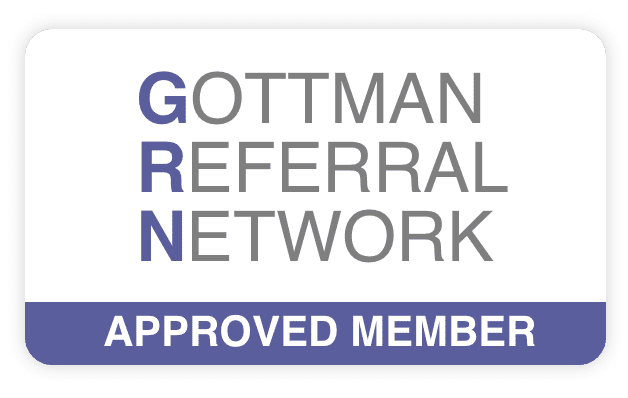what makes love last?
My Approach to Couples Counseling
I have completed Level 1 and Level 2 Training in Gottman Method Couples Therapy, an evidence-based approach grounded in decades of research on relationship dynamics. The Gottman Method focuses on strengthening couples’ friendship and enhancing their sense of fondness and admiration for each other. It also provides practical tools to improve communication and manage conflict more effectively. A key component of the Gottman Method is helping partners recognize and disrupt negative communication patterns that have been empirically shown to predict relationship breakdown.
While I continue to incorporate interventions from my primary approach to individual counseling, couples therapy requires a distinct set of skills, training, and interventions. Many couples seek support during times of significant stress or disconnection. Working with two people in the room, each with their own perspectives, needs, and emotional responses, requires an approach tailored specifically to relational dynamics. The Gottman Method offers that framework, allowing me to support couples in building their connection through research-backed strategies.
The Assessment Process
The assessment phase is a foundational component of the Gottman Method and takes place over the first three sessions. This structured process helps us understand the unique dynamics of your relationship so we can tailor treatment to your specific needs.
Session 1: Joint Session
We’ll begin with a conversation about what brings you to couples therapy. I’ll ask you to share the story of your relationship—how you met, what drew you to each other, and key moments along the way. Toward the end of the session, I will invite you to discuss an unresolved issue. This allows me to observe your communication patterns in real time, which is a key aspect of the Gottman assessment.Between Sessions 1 and 2: Written Assessment
You’ll each complete a comprehensive, research-based questionnaire developed by The Gottman Institute. This assessment provides valuable insights into the strengths and challenges within your relationship, including communication, conflict resolution, intimacy, trust, and more.Session 2: Individual Sessions
I will meet with each of you separately to learn more about your individual perspectives, personal histories, and family backgrounds. Understanding your life experiences, especially those that influence how you relate to others, helps us identify patterns that may be impacting your current relationship.Session 3: Feedback Session
In our third session, I will share a summary of the assessment findings. Together, we will identify key areas to focus on in therapy and collaboratively set goals for the work ahead.
Ongoing Treatment
After completing the assessment process, we will work together to identify goals for therapy based on your unique relationship dynamics. The Gottman Method is non-prescriptive, meaning that you, as a couple, set the agenda for what is discussed in each session. My role is to support you as you explore areas of conflict, and to step in when I notice communication patterns that research has shown to be harmful or predictive of separation. In addition to helping you navigate conflict, I will also teach specific interventions to help you actively build your friendship, increase emotional connection, and strengthen the positive foundation of your relationship. I will guide you in learning how to listen to your partner with greater empathy, using concrete strategies that help foster understanding and emotional intimacy.
Throughout our work together, I’ll offer alternative ways to communicate and introduce practical tools and interventions that you can use both in and outside of session. The ultimate goal is for therapy to become unnecessary. That is, for you to become more self-sufficient as a couple. This is what we call becoming dyadic: able to engage in meaningful, respectful dialogue and navigate challenges together without needing a third party.
All relationships involve conflict, and many issues couples face are ongoing or “unsolvable.” That’s why improving how you communicate and stay connected during difficult moments is essential for long-term relationship health.
